The Comprehensive Guide to Card Grading: Demystifying BGS, PSA, SGC, and CGC
Card collecting has grown from a casual hobby to a serious investment avenue. As the market matures, determining a card’s authenticity and condition becomes pivotal. This article aims to provide a deep dive into card grading, addressing key questions and offering a comparison between major grading companies: BGS, PSA, SGC, and CGC.
What is a Graded Card?
A graded card is a trading card that has been professionally authenticated, evaluated, and assigned a specific grade by a respected third-party grading company. This grade reflects the card’s condition, with higher grades indicating better preservation and fewer imperfections. Grading companies assess various aspects of a card, such as centering, corners, edges, surface quality, and overall presentation.
Why Do People Get Cards Graded?
People get cards graded for several reasons:
- Authentication: Grading confirms a card’s authenticity, protecting collectors from counterfeit or altered cards.
- Condition Assessment: Grading evaluates a card’s condition, helping collectors understand its preservation and potential value.
- Value Determination: Grading establishes a card’s grade, which often correlates with its market value.
- Preservation: Graded cards are encased in protective holders, safeguarding them from damage or wear.
- Marketability: Graded cards are more appealing to buyers, making them easier to sell or trade.
How Much Does It Cost to Get a Card Graded?
The cost of grading a card varies depending on factors like the grading company, card’s value, turnaround time, and any additional services you may require. Leading grading companies such as PSA (Professional Sports Authenticator) and BGS (Beckett Grading Services) offer tiered pricing structures.
On average, grading fees typically range from $10 to $300 per card. Prices tend to be higher for expedited services or for cards with higher values. If you want fast service with accurate grading check out SGC Grading. If you want really affordable pricing with fast turnaround times consider GMA Grading.
Are Graded Cards Worth Anything?
Yes, graded cards can be worth a substantial amount, especially if they receive high grades. Collectors and investors value graded cards for their authenticity, condition, and the assurance that comes with third-party grading. Cards with higher grades often command significantly higher prices in the collector’s market. The value of a graded card also depends on the card’s rarity, demand, and the player featured on it.
Is PSA or BGS Better?
The choice between PSA and BGS largely depends on personal preferences and the specific card or collection you’re dealing with. PSA is well-known for its simplicity, with a straightforward grading scale from 1 to 10. BGS, on the other hand, uses a dual grading system that includes sub-grades for various aspects of the card.
Both grading companies have their strengths, and collectors may have preferences for one over the other. It’s essential to research and understand their grading standards before making a choice.
Can You Grade Your Own Cards?
Grading companies typically do not allow individuals to grade their own cards due to potential conflicts of interest. Cards must be submitted through authorized dealers or directly to the grading company. Self-grading can also lead to biases, as individuals may overestimate the condition of their cards which is why the third-party companies are here.
If you want to grade your own cards for selling then check out this article.
Is It Better to Sell Cards Graded or Ungraded?
The decision to sell graded or ungraded cards depends on various factors. Graded cards offer authenticity, condition assurance, and may command higher prices, especially for high-grade cards. However, some collectors prefer raw, ungraded cards for personal grading or to assess the card’s condition themselves.
It’s essential to consider your target market and the specific cards you’re selling when deciding whether to grade or sell cards in their raw form.
Where is the Best Place to Get Cards Graded?
The best place to get cards graded depends on your location and preferences. Leading grading companies like PSA, BGS, and SGC offer reliable grading services. You can submit cards directly to these companies or work with authorized dealers or grading submitters who can facilitate the process.
Research each company’s grading standards, pricing, and turnaround times to make an informed choice. Let’s look at some of the leading companies to submit your cards to.
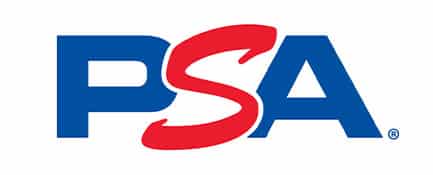
Professional Sports Authenticator (PSA)
Founded in 1991, PSA quickly became a significant force in card grading and is often seen as the industry standard for sports cards. If you want to learn how to submit to PSA read this article.
Grading Scale: PSA uses a 10-point grading scale, with half points between 1-9 but not between 9 and 10.
Labels: PSA’s lighthouse label is iconic in the industry. They also incorporate DNA technology for additional security.
Specialty: PSA is particularly revered for its grading of vintage cards, modern cards, and autograph authentication. Their encapsulation provides both protection and easy display.
Here is an in-depth video on how to submit your cards to PSA for grading.
Is PSA 7 a Good Grade?
A PSA 7 grade is considered a respectable grade for a trading card. It represents a card in above-average condition with minor flaws, such as slightly rounded corners or slight wear. While it may not be the highest grade, a PSA 7 card can still hold significant value, depending on the card’s rarity and demand.
Is PSA 8 a Good Grade?
A PSA 8 grade is considered an excellent grade for a trading card. It signifies a card in near mint to mint condition with only minor imperfections, such as slight corner wear or minor printing defects. PSA 8 cards are highly collectible and often command substantial value in the market.
What Does PSA 9 Mean?
A PSA 9 grade signifies a card in near-mint to mint condition. While it may have minor imperfections visible upon close inspection, it is considered an outstanding card with excellent preservation of its original quality. PSA 9 cards are highly regarded in the collector’s market.
What Does PSA 10 Mean?
What Does a Gem Mint Card Look Like?
A “Gem Mint” card showcases sharp focus, full original gloss, sharp corners, and a flawless surface. There should be no staining, and the color/printing should be flawless. To learn more about grading cards read this article.
A PSA 10 grade is the highest achievable grade, representing a card in impeccable condition. It indicates a card with flawless corners, edges, surface, and centering. PSA 10 cards are exceptionally rare and are highly sought after by collectors and investors.
Is PSA Grading Worth the Money?
PSA grading can be worth the investment, especially for valuable or rare cards. PSA-graded cards tend to have strong market demand and higher resale values. The authentication and preservation benefits of PSA grading provide peace of mind for collectors. However, it’s crucial to weigh the cost of grading against the potential increase in a card’s value to determine if it’s financially worthwhile.
How Long Does PSA Grading Take?
The turnaround time for PSA grading can vary based on the service level you choose and current demand. Standard service levels may take several months, while expedited services can significantly reduce the wait time to a few weeks. Be sure to check PSA’s official website for the most up-to-date information on turnaround times.
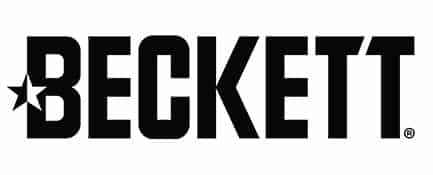
Beckett Grading Services (BGS)
Founded by Dr. James Beckett in the 1980s, Beckett Media has been a pillar in the collectible card industry. BGS offers a rigorous grading procedure.
Here is a video on how to submit your cards to Beckett.
Grading Scale: BGS uses a 10-point scale, with half-point increments starting from 1-10.
Sub-grades: Unique to BGS, they provide four sub-grades on their label: Centering, Corners, Edges, and Surface. The overall grade is the average of these four.
Labels: BGS has three main labels.
- BGS: Their mainline grading service.
- BVG: Vintage card grading.
- BCCG: A more lenient and economical grading service for the mass market.
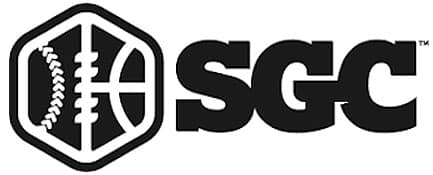
Sportscard Guaranty Company (SGC)
SGC, though younger than the other two, has established itself, particularly in the vintage sports card sector. However, have been doing well in all categories and eras.
To read more about SGC card grading read our article here.
SGC Reduced their Fees Significantly
Recently, SGC has gained significant traction in both the modern and vintage card sectors, thanks to their competitive price reductions. Many collectors are now leaning towards grading services that offer more value, with both SGC and BGS leading in this aspect. Conversely, PSA has opted to maintain a higher price point in comparison to its competitors.
Grading Scale: SGC, until recently, used a 100-point scale, but they have shifted to a simpler 10-point scale with half-points to align more with industry standards.
Labels: SGC’s black matting around the card within its case offers a distinct look. Many collectors find this enhances the card’s visual appeal.
Specialty: SGC is recognized for its expertise in grading vintage cards, especially pre-war baseball cards.
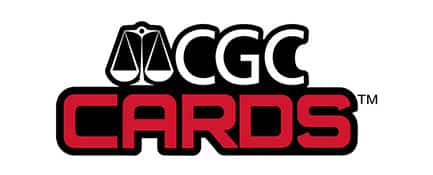
CGC Cards
Emerging as a trusted name in card grading, CGC Cards is backed by the seasoned management team behind NGC, PMG, and CGC, leading names in coin, paper money, and pop culture certification.
- Who They Are: CGC Cards is an authority in the authentication, grading, and encapsulation of TCGs, sports, and non-sports cards.
- What They Do: Using cutting-edge technology and unmatched expertise, CGC Cards offers consistent and timely certification for all card types, backed by the industry’s most robust guarantee.
Which Grading Service Should You Choose?
The choice depends on the type of card, your budget, and personal preferences:
PSA: The industry titan, PSA leads in all facets. However, it’s the priciest and has slower turnaround times. PSA 10 is highly sought after.
BGS (Beckett Grading Services): Preferred for modern baseball cards and thicker memorabilia cards due to their robust cases. They also provide sub-grades, adding depth to grading.
Here is a video explaining which cards to submit to Beckett.
SGC (Sportscard Guaranty Company): Gaining momentum, especially with vintage cards. Their bold label font and unique black plastic border ensure cards stay put, even with non-square die-cuts. They’ve recently slashed prices and promised quicker turnaround times, positioning themselves competitively.
CGC: While dominant in the TCG and Pokémon sector, CGC is yet to penetrate the sports card segment deeply. They offer quality services but face stiff competition from the aforementioned giants.
Given the dynamic market, collectors currently favor companies offering value—both in terms of cost and time.

Conclusion
As the card industry evolves, the role of grading services becomes even more crucial. Whether you’re a novice or a seasoned collector, aligning with the right grading company can significantly influence your card’s value and appeal.
While PSA remains the gold standard, SGC’s innovation and BGS’s reliability offer compelling alternatives. Meanwhile, CGC is carving its niche in the TCG realm. The journey of card collecting and investing is rich and varied—ensure you’re armed with the best knowledge.
From a young age, Matt dove deep into sports card valuation, turning to esteemed price guides like Beckett and Tuff Stuff. Eventually he extended to Pokémon, Magic: The Gathering, and Yu-Gi-Oh!. With a vision to sustain and nurture the hobby he loved, Matt established the ‘Graded Card Investor’ YouTube channel and website. He aims to foster a healthy community and offer invaluable insights to those entering the world of sports cards and TCGs. His depth of understanding, from the card market’s 2020 pinnacle to its 1990s valleys, is consistently fortified by meticulous research.
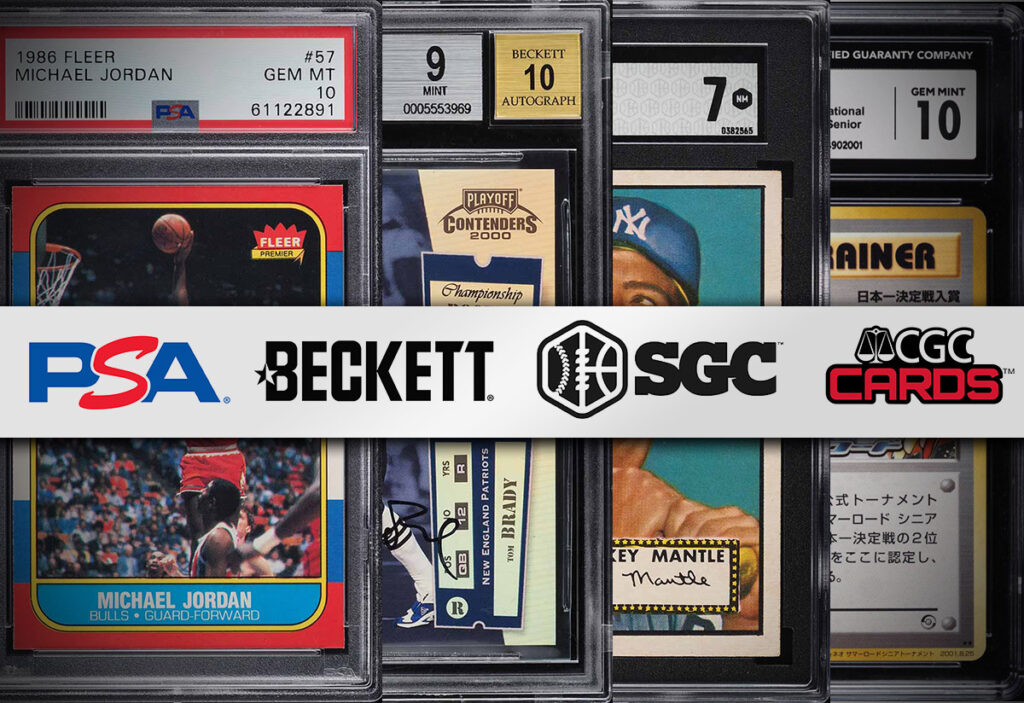
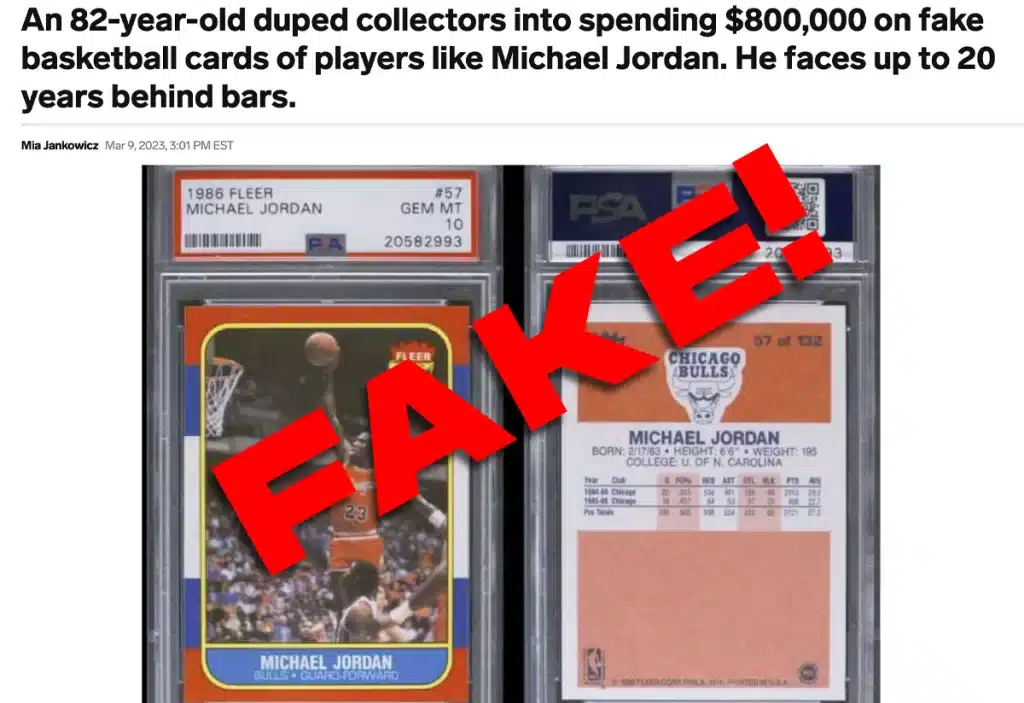

I would 100% send the cards on your own and not join a group. Unless you know the guys personally then it is a bad idea. I have never sent in a group submission due to the bad experiences I have heard from others, it’s just not worth saving a couple bucks or even a speedier turnaround time. Send them in yourself. Best of luck with your grades!
This will be my first time sending in cards to be graded. I’m 56 and been in the hobby about 30 years. I’m wondering if it’s better to send in my cards individually or with a group? I have a slight problem with the group being trustworthy.
I love things to do with grading company so I know which one to go too and the best pricing
I love to see what is going on with the grading company and way is so I know what one to go too and the best one to go too
I love to see what is going on with the grading company and way is so I know what one to go too
Thank you for posting this article! I am getting back in the hobby with my 10 year son and 7 yr old daughter. It makes my heart warm when we open new cards together. They get even more excited than me when we get back our graded cards from PSA and SGC.
Thanks again for all you do. Love the youtube videos!
Hopefully me and the kids will get a nice case to store our graded cards!
Mahalo,
DC
It’s great that someone is on youtube and informs us of current card values, cards that rise and ones that drop. Who also gives his unbiased opinions on different card grading companies. Someone like me watches every video so i can keep learning and try to not make huge mistakes like I’m about to make.
Im sending in 275 cards to get graded from PSA. I been saving all year to afford the grading fees for the cards.
Now when the cards come back, then I’ll be saving again to get a card case to hold them all.
I have topps complete sets from 1977 to 1997. Looking to keep building. I also have over 40 boxes that are 5,000 count full of football cards that I haven’t even gone through yet. Hopefully I dont make too many mistakes sending in all the cards at once the 1st week of october. I hope to make a profit, but at the same time, I have 500 cards between my wife and I that we wanna keep in my PC, thankfully they are in top loaders and in sneaker boxes. I need to buy some more sneakers so i can use those boxes to put the graded cards in until I cam buy a case in the spring of 2024. ….
I haven’t graded any cards that I have collected as a teen! But, I do intend to grade some of my older cards soon!
Matt, (from YouTube) sent me to your site!
Thank you for the great information on your web site.
JaysMIX – YouTube